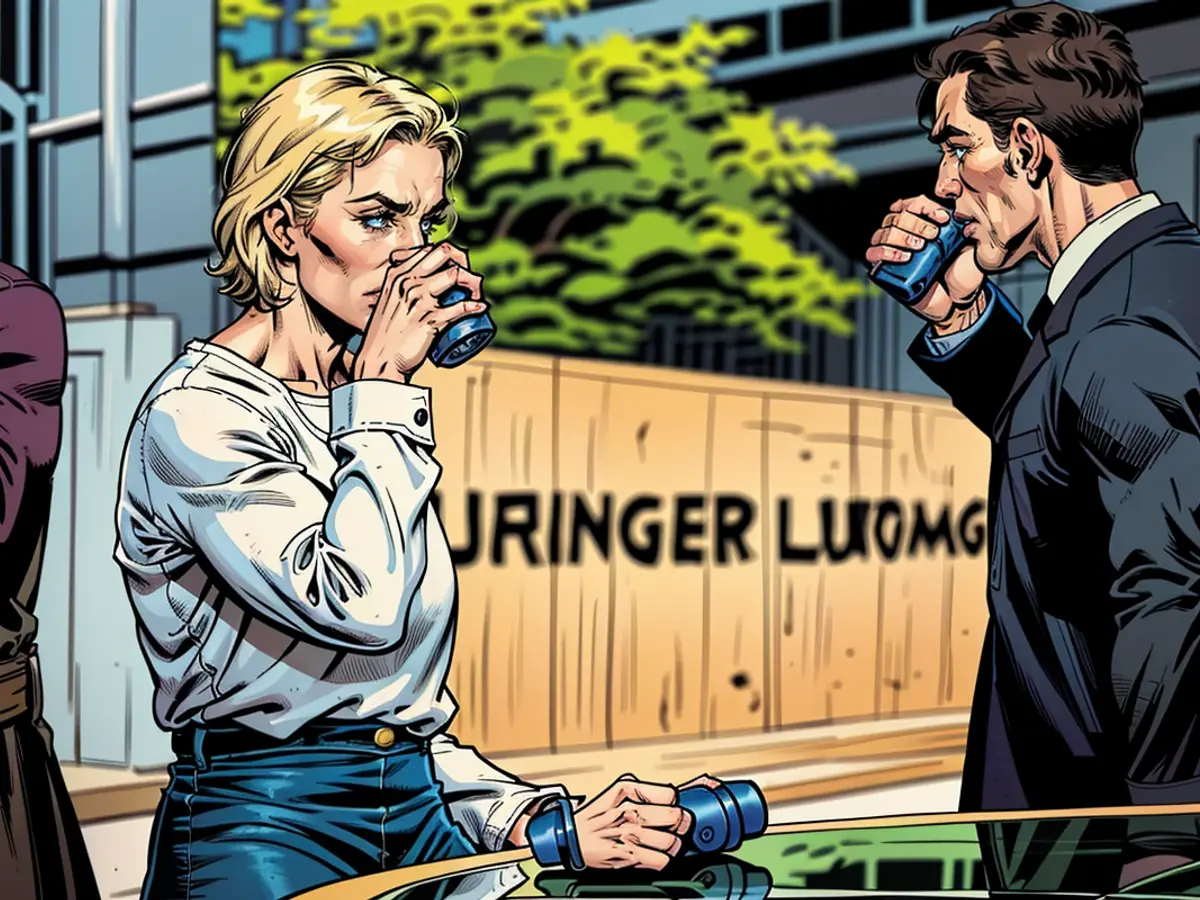- The Authority has previously put forth several suggestions related to the issue.
Tough Political Times Ahead for Thuringia: Post the state election, no politically viable majorities are appearing. For the first time, the AfD has become the dominant force in a federal state – in Thuringia, surprisingly, with extreme right-wing leader Björn Höcke leading the charge. At 52, Höcke dreams of governing and is open to negotiations with other parties, but these talks are likely to be rejected, as no one wants to form a coalition with the AfD. The sole option might be an alliance between the CDU, BSW, and the Left, but Thuringia's CDU head Mario Voigt rejects any coalition with the AfD or the Left, due to the party's incompatibility resolution.
Political analyst Oliver Lembcke suggested to the German Press Agency that the CDU should consider reaching out to the Left Party given the challenging situation. However, this move would reignite the debate about the firewall to the right, with the AfD. "If you start considering one firewall, you'll have to discuss the other one as well," stated the expert from Bochum University.
Thuringia's Standstill:
The AfD secured 32.8% in preliminary results, outranking the CDU (23.6%). The new alliance headed by Sahra Wagenknecht (BSW) came in third with 15.8%, while the Left, led by Minister President Bodo Ramelow, fell to fourth place with 13.1%. The SPD managed to enter the state parliament with 6.1%, but the Greens failed to make it, only reaching 3.2%. The FDP, led by Thomas Kemmerich, also missed the cut with 1.1% voter support. The voter turnout was notably higher, at 73.6%.
Initially, hopes were high for a coalition between the CDU, BSW, and the SPD; however, a standstill ensued in the state parliament: 44 seats for the potential three-party coalition on one side and 44 seats for the potential opposition by the AfD and the Left on the other.
Lembcke observed that Voigt had bet on a CDU-led coalition with the new BSW, which ultimately failed. He pointed out that Ramelow had advocated for the CDU to open up to the Left for some time.
Ramelow Offers Assistance:
Ramelow offered support for government formation on election night, if requested by other parties. He confirmed, "I will do everything to ensure a majority government." He did not specify whether this could also involve tolerating a potential coalition of CDU, BSW, and the SPD. "I don't need to speculate," he told the dpa.
Thuringia's Minister of State Benjamin-Immanuel Hoff (Left) was more forthright than Ramelow, urging the CDU to abandon its refusal to collaborate with the Left, as he told the RND. Thuringia's Left leader Christian Schaft did not dismiss the possibility of a tolerance model in principle, provided the CDU reconsiders its party conference resolution prohibiting any cooperation with the Left.
Lembcke suggested, "Alternatives to the coalition with the Left, which is essentially forbidden for the CDU, would result in ungovernability in the federal state or a minority government tolerated by the Left. If Voigt opts for a minority government, from Lembcke's perspective, he would be strengthening his dependence on the Left and making himself vulnerable to blackmail in decision-making processes."
Lembcke, who worked at the Friedrich-Schiller-University in Jena for years, views the state elections in Saxony and Thuringia as a turning point in Germany's party structure. "This election was a vote of anger against a West German-dominated party landscape and against the traffic light coalition," he stated.
In light of the challenging political situation in Thuringia, political analyst Oliver Lembcke suggested that the CDU should consider reaching out to the Left Party, led by Minister President Bodo Ramelow, due to the current coalition impasse. Despite Bodo Ramelow's offer of assistance for government formation, Thuringia's CDU head Mario Voigt has rejected any coalition with the Left or the AfD, citing party incompatibility.








